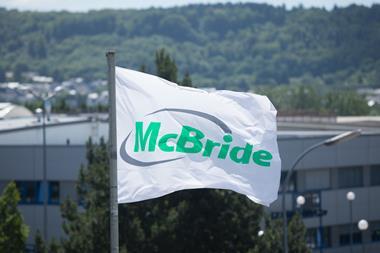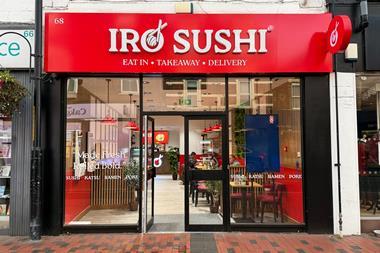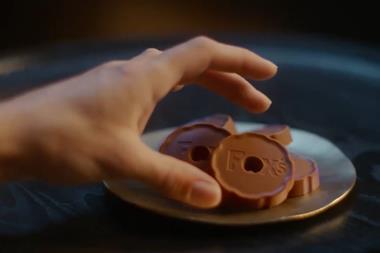It’s tough out there for foodservice providers. Overheads are overwhelming, catering customers are cutting back and margins are being mangled.
And if you’re also a business saddled with £1.3bn of debt, buying a loss-making company with no obvious cost synergies might not be seen as a sensible move.
But that’s exactly what Brakes has done, striking a deal, approved this week by the Office of Fair Trading, to buy Woodward Foodservice for an estimated £20m.
Woodward has had a torrid time of late, although it claims to be on the road to recovery. It made a loss of £33m in the year ending April 2007, but reduced this to £16m this year as a result of major restructuring. This involved closing depots in the southeast, axing 750 jobs and terminating loss-making contracts with high-profile clients such as Pizza Express. Turnover reduced from £187m to £109m.
Brakes’ figures also make interesting reading. It has a massive debt burden, having been bought by private equity company Bain Capital for £1.4bn in September in one of the last big deals to go down before the credit crunch.
Brakes recorded EBITDA of £128m in 2007, but paid roughly £61m of interest in the first six months since the acquisition. Bain Capital, however, has said the repayments are effectively much lower as some are owed to shareholders or are payment-in-kind.
Of its £1.33bn of debt, however, £1.15bn has been loaned at ‘floating interest rates’, so it must be hoping more than most that interest rates don’t rise.
Given the situation, why would Brakes, already the UK’s biggest foodservice provider, want to stretch itself further?
The deal should add another £109m turnover to Brakes’ current total of £1.8bn, further distancing it from nearest rival 3663 First for Foodservice, which has a turnover of £1.5bn.
Woodward’s estimated price tag is only a molehill compared with the mountain of debt Brakes already shoulders, so the acquisition could prove a bargain if it turns in a profit soon. But Woodward is still expected to make a loss of up to £10m this year, admits Andrew Ramsden, managing director of the Woodward Group, which sold Woodward Foodservice to Brakes.
The motivation is not geographic. Woodward is a regional player, based primarily in Scotland, the North of England, the Midlands and Wales. Brakes on the other hand is a national player and already has established positions in these regions.
Where Brakes does believe Woodward can succeed, however, is as a complementary business. Brakes group chief executive Frank McKay says Woodward would sit nicely alongside other ranges such as Pauleys, Country Choice and M&J Seafood.
Also, Woodward’s contracts are mainly independent, including pubs, restaurants and hotels, whereas Brakes has a lot of public sector contracts.
“Woodward would give us a wider customer base, particularly in the independent sector,” says McKay. “It has 6,000 independent customers, which would be very attractive in the Brakes portfolio.”
However, there are no plans to integrate Woodward, which will be run as a separate company under the control of current managing director Jeremy Woodward.
So when might the company make a profit? And how?
“Up to March 2007 the numbers were horrendous,” says Ramsden. “It’s now a very good regional wholesale business.”
But neither the old owner nor the new one would reveal the steps it’s taking to move it from the red to the black.
And if you’re also a business saddled with £1.3bn of debt, buying a loss-making company with no obvious cost synergies might not be seen as a sensible move.
But that’s exactly what Brakes has done, striking a deal, approved this week by the Office of Fair Trading, to buy Woodward Foodservice for an estimated £20m.
Woodward has had a torrid time of late, although it claims to be on the road to recovery. It made a loss of £33m in the year ending April 2007, but reduced this to £16m this year as a result of major restructuring. This involved closing depots in the southeast, axing 750 jobs and terminating loss-making contracts with high-profile clients such as Pizza Express. Turnover reduced from £187m to £109m.
Brakes’ figures also make interesting reading. It has a massive debt burden, having been bought by private equity company Bain Capital for £1.4bn in September in one of the last big deals to go down before the credit crunch.
Brakes recorded EBITDA of £128m in 2007, but paid roughly £61m of interest in the first six months since the acquisition. Bain Capital, however, has said the repayments are effectively much lower as some are owed to shareholders or are payment-in-kind.
Of its £1.33bn of debt, however, £1.15bn has been loaned at ‘floating interest rates’, so it must be hoping more than most that interest rates don’t rise.
Given the situation, why would Brakes, already the UK’s biggest foodservice provider, want to stretch itself further?
The deal should add another £109m turnover to Brakes’ current total of £1.8bn, further distancing it from nearest rival 3663 First for Foodservice, which has a turnover of £1.5bn.
Woodward’s estimated price tag is only a molehill compared with the mountain of debt Brakes already shoulders, so the acquisition could prove a bargain if it turns in a profit soon. But Woodward is still expected to make a loss of up to £10m this year, admits Andrew Ramsden, managing director of the Woodward Group, which sold Woodward Foodservice to Brakes.
The motivation is not geographic. Woodward is a regional player, based primarily in Scotland, the North of England, the Midlands and Wales. Brakes on the other hand is a national player and already has established positions in these regions.
Where Brakes does believe Woodward can succeed, however, is as a complementary business. Brakes group chief executive Frank McKay says Woodward would sit nicely alongside other ranges such as Pauleys, Country Choice and M&J Seafood.
Also, Woodward’s contracts are mainly independent, including pubs, restaurants and hotels, whereas Brakes has a lot of public sector contracts.
“Woodward would give us a wider customer base, particularly in the independent sector,” says McKay. “It has 6,000 independent customers, which would be very attractive in the Brakes portfolio.”
However, there are no plans to integrate Woodward, which will be run as a separate company under the control of current managing director Jeremy Woodward.
So when might the company make a profit? And how?
“Up to March 2007 the numbers were horrendous,” says Ramsden. “It’s now a very good regional wholesale business.”
But neither the old owner nor the new one would reveal the steps it’s taking to move it from the red to the black.



















No comments yet